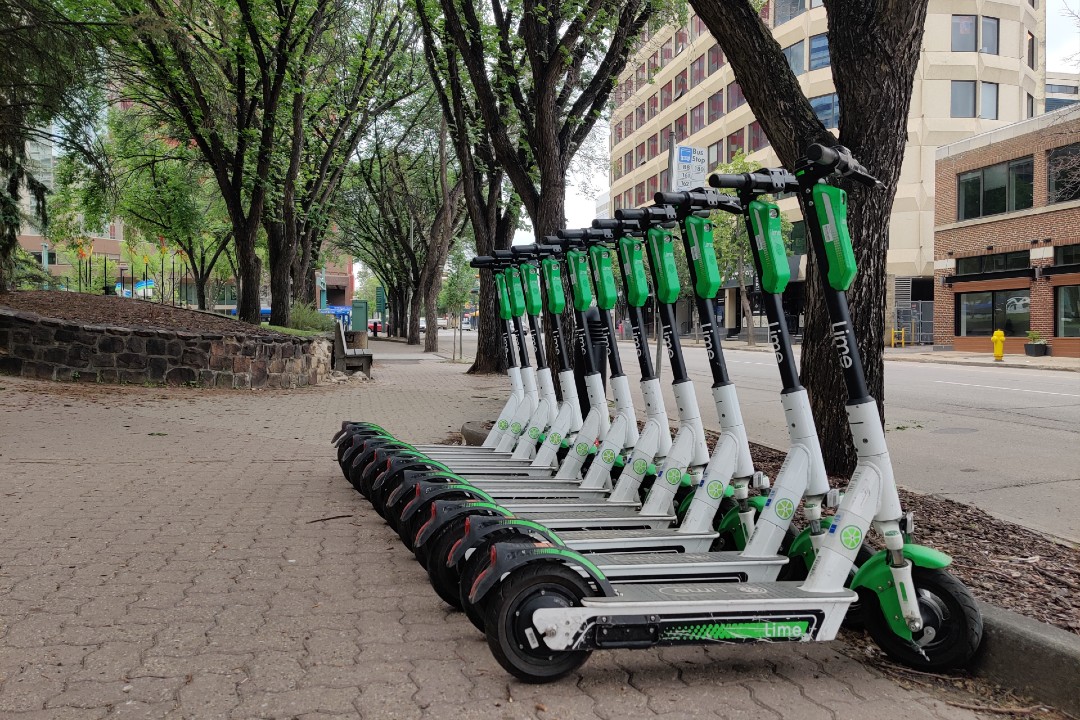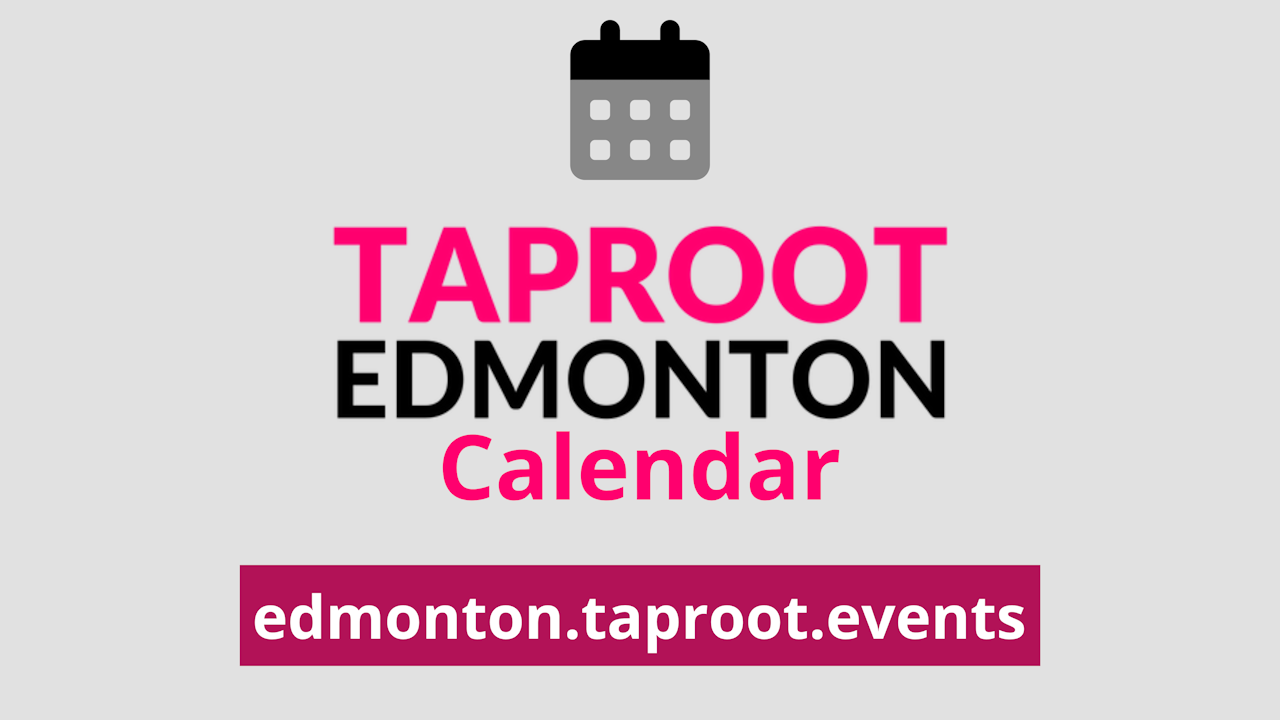
E-scooter operators introduce cognitive test among features aimed at addressing critics
Riders who use shared e-scooters and e-bikes in Edmonton may have noticed a new test that encourages them to reflect on their level of intoxication before taking to the streets.
"We do have the reaction test at night, which is, I think, a good way to give people a chance to do the right thing and ride safely late at night," Lime spokesperson Jacob Tugendrajch told Taproot.
The new test is one of several changes to micromobility devices in Edmonton, now that they're back on the streets. This follows an extended delay in rolling out the service earlier this spring. In May, the City of Edmonton announced Bird and Lime had been selected as vendors for its e-scooter and e-bike shared permit for the next three years. In June, Neuron was added as a third vendor. The new features could be joined by others in the works aimed at discouraging behaviour that breaks rules and creates negative perceptions about the industry.
In 2024, users who rent a micromobility device from Lime, as well as from Bird and Neuron, can now be asked to prove their cognitive abilities. Each of the three vendors has a mini-game that tests reaction time and can lock you out of the app if you fail.
Jenny Albers, general supervisor in the City of Edmonton's traffic operations department, told Taproot that the city didn't ask for any specific safety features in its request for proposals, but did look for a suite of features. "With the contracts with the vendors, we do give them flexibility for them to choose around what technologies and tactics they want to use," Albers said.
In August, the city asked the public about shared micromobility devices like e-scooters. It found that people who don't use shared e-scooters and e-bikes are most concerned about where the devices end up being parked, riders using them on sidewalks, and riders who pass on shared-use paths. Administration told Taproot in April that the e-scooter rollout was delayed partly due to a more comprehensive bidding process based on that public feedback.
The vendors have developed other new safety features. Bird Canada is working on creating a rider score for its users, spokesperson Austin Spademan told Taproot. "It's basically taking all of the data to see if you're a good rider or a bad rider," he said.
Sensors in the Bird devices can detect if a rider is weaving or frequently braking too hard. Spademan said the first step would be education through the app, reminding the user of the rules. "But there is a future where, as Bird Canada, we might actually exit a rider from our service if they're not able to adhere to the rules of the road," he said.
Bird is also working on technology to detect when users may be double riding. If you and your buddy hop on a scooter, Titanic-style, it may in the future be able to tell that your usual weight has approximately doubled, and the app would give you a warning.
"When we talk about safety, we're really getting to the level of getting the (users) to follow the rules appropriately, having preventative measures in place from riding under the influence, and on top of that preventing that visually bad behaviour that gives the industry a bad name — and double riding is a great example of that," Spademan said.







